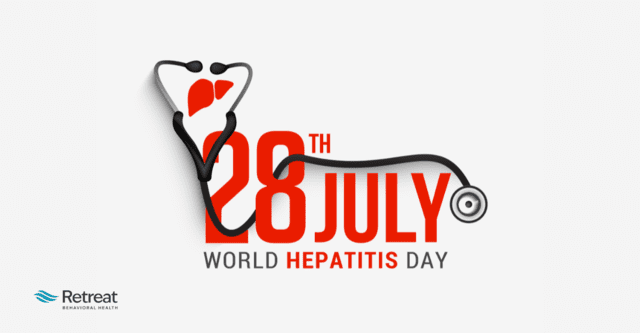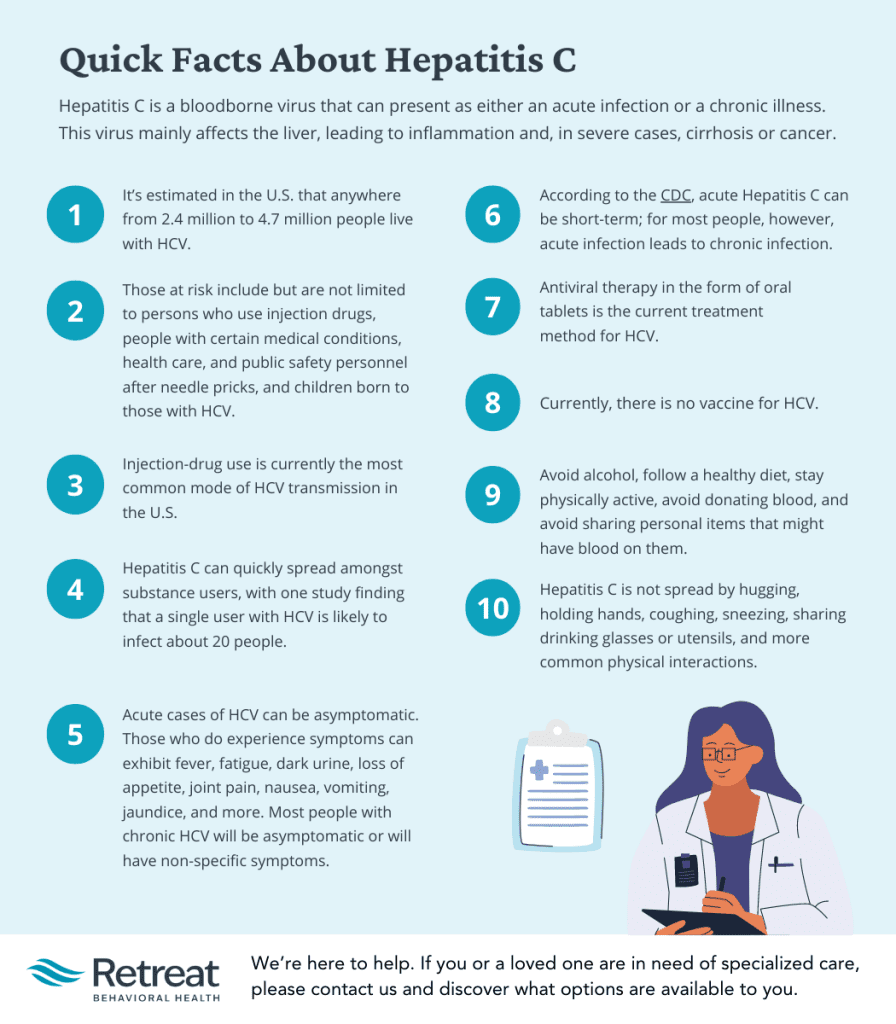Why is World Hepatitis C Day Celebrated?
World Hepatitis Day, also World Hepatitis C Day, is a global event celebrated on July 28th. And while the event’s primary goal is to spread awareness about the various forms of the hepatitis virus—including the hepatitis C virus (HCV)—it also marks an occasion to honor the achievements made in hepatitis research and treatment.
Nearly 58 million people worldwide live with chronic hepatitis C, and there are approximately 1.5 million new infections of the virus each year. So in recognition of World Hepatitis C Day, we’re sharing a bit more information about the illness, including how people get it and the correlation between hepatitis C and substance use disorder.
What is Hepatitis C?
Hepatitis C is a bloodborne virus that can present as either an acute infection or a chronic illness. This virus mainly affects the liver, leading to inflammation and, in severe cases, cirrhosis or cancer.
How Do People Get Hep C?
Like other bloodborne illnesses, HCV is contracted through exposure to blood that already carries the disease. This can happen through several methods, including unsafe injection practices or unscreened blood transfusions. However, at this time, the use of injected drugs is considered a primary risk factor for contracting hepatitis C.
Myths and Facts About Hepatitis C
Myth: You’ll always know if you have hepatitis C.
Fact: Acute and chronic cases of HCV can be asymptomatic. Those who experience symptoms, however, can exhibit fever, fatigue, joint pain, jaundice, and more.
Myth: Once you have hepatitis C, you have it forever.
Fact: According to the CDC acute Hepatitis C can be short-term for some; however, acute infection could also lead to chronic infection. Patients will always have a positive antibody screening but not necessarily active disease if their body heals an acute infection or if they are treated with FDA-approved medications.
Myth: There is no treatment for hepatitis C.
Fact: Antiviral therapy can cure most persons with HCV according to the World Health Organization. Unfortunately, access to hep C screenings and treatments is very low (but improving).
Hepatitis C & Substance Use
As mentioned, drug use is a considerable risk factor for hepatitis C. The illness can quickly spread amongst substance users, with one study finding that a single user with HCV is likely to infect about 20 people.
Sharing a needle with an infected individual is one significant way the virus spreads from person to person. Other behaviors related to substance use, including coming into contact with surfaces, fingers, and drug paraphernalia contaminated with HCV-positive blood, can also lead to infection.
National Hepatitis Day: U.S. Support & Awareness
Here in the U.S., it’s estimated that anywhere from 2.4 million to 4.7 million people are currently living with HCV. This World Hepatitis Day, you can help show your support and spread awareness of the disease and its risk factors by sharing information with your social media network and talking to others about the realities of HCV. Use the hashtag #WorldHepatitisDay to expand your reach and connect with others around this important cause.
For those dealing with substance use disorder, a good way to prevent HCV infection and get started along the road to substance use recovery is to seek professional assistance.
About Retreat Behavioral Health
At Retreat Behavioral Health, we offer comprehensive substance use and mental health services that can help get you on the path to recovery. Contact us today for more information.
Retreat Behavioral Health has inpatient and outpatient locations in Connecticut, Florida, and Pennsylvania.





